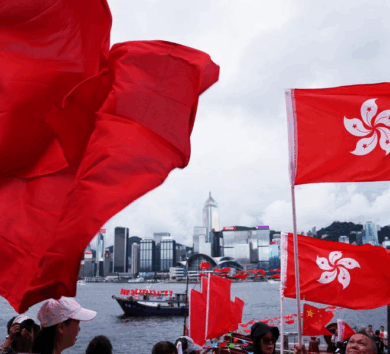

Germany, Europe’s biggest economy, has been plunged into a standstill, as two of the biggest trade unions in the country walked out on talks to settle growing labour unrest.
The walk-out by Verdi trade union and railway and transport union (EVG) is said to be one of the largest walkouts in decades, as Germany reels from surging inflation. The unions are demanding better pay for their members to withstand price rises as inflation in Germany is currently running near double digits.
Airports and bus and train stations across Germany were at a standstill today (March 27), causing disruption for millions at the start of the working week. This is the latest in months of industrial action, which has hit major European economies as higher food and energy prices dent living standards.
The walk-out comes after three days of wage talks, which could lead to further strikes if they fail to yield a compromise. Employers have offered five per cent more wages over a period of 27 months and a one-off payment of €2,500 but the unions, which are calling for double-digit hikes, slammed the offer as unacceptable amid soaring inflation, now standing at 9.3% in February.
Unions have strong negotiating hand
Reuters reports economists as saying that worsening chronic labour shortages give unions a strong negotiating hand. The walkout is the biggest in the consensus-oriented country with a long history of collective wage bargaining since 1992, according to Verdi.
“Employees are fed up with being fobbed off with warm words while work conditions get even worse and there are many vacant posts,” Verdi chief Frank Werneke told reporters today.
The German Airports Association ADV estimated that 380,000 air passengers were affected by flight suspensions including at two of Germany’s largest airports in Munich and Frankfurt. In Frankfurt alone, almost 1,200 flights for 160,000 passengers were cancelled and stranded travellers slept on benches.
Rail services were also cancelled by railway operator Deutsche Bahn. Striking workers wearing yellow or red high-visibility jackets blew horns, sirens and whistles, held up banners and waved flags during protests. In Cologne, the lack of city trains prompted a dash for taxis.

“Millions of passengers who depend on buses and trains are suffering from this excessive, exaggerated strike,” a Deutsche Bahn spokesperson said today. Verdi is negotiating on behalf of around 2.5 million employees in the public sector, including in public transport and at airports, while EVG negotiates for around 230,000 employees at Deutsche Bahn and bus companies.
Verdi is demanding a 10.5 per cent wage increase, which would see pay rising by at least €500 euros (US$538) per month, while EVG is asking for a 12 per cent raise or at least €650 euros per month. Stranded passengers expressed both sympathy and unhappiness about the strike action.

“Yes, it’s justified but I for one never went on strike in my entire life and I have been working for more than 40 years. At the same time, in France they go on strike all the time about something,” said passenger Lars Boehm.







Comments